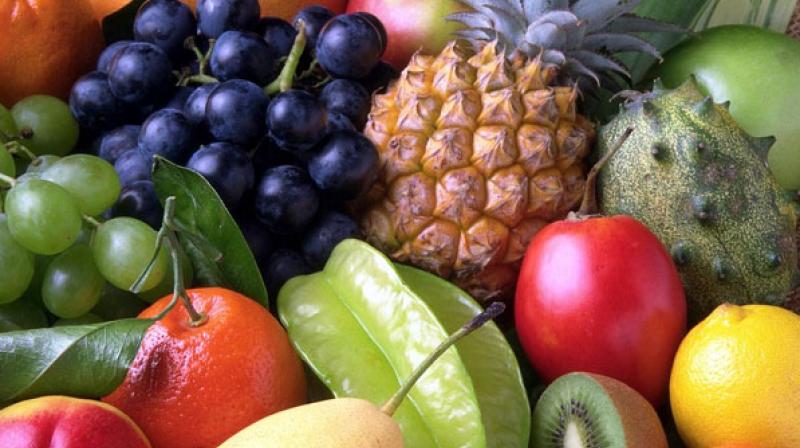Eating veggies, fruits daily may keep stress away: study

Melbourne: Eating more servings of fruits and vegetables every day may lower your risk of stress, a new study has claimed. The study of over 60,000 Australians aged 45 years and above measured participants fruit and vegetable consumption, lifestyle factors and psychological distress at two time points, 2006-08 and 2010.
Researchers at University of Sydney in Australia found that people who ate 3-4 daily serves of vegetables had a 12 per cent lower risk of stress than those who ate 0-1 serves daily. Those who ate 5-7 daily serves of fruit and vegetables
had a 14 per cent lower risk of stress than those who ate 0-4 serves daily. The study also found that women who ate 3-4 daily serves of vegetables had an 18 per cent lower risk of stress than those who ate 0-1 serves daily.
Women who ate 2 daily serves of fruit had a 16 per cent lower risk of stress than women who ate 0-1 serves daily. Women who ate 5-7 daily serves of fruit and vegetables had a 23 per cent lower risk of stress than women who ate 0-1
serves daily. "This study shows that moderate daily fruit and vegetable consumption is associated with lower rates of psychological stress," said Melody Ding of the University of Sydney's School of Public Health.
"It also reveals that moderate daily vegetable intake alone is linked to a lower incidence of psychological stress. Moderate fruit intake alone appears to confer no significant benefit on people's psychological stress," said Ding. Psychological distress was measured using the Kessler Psychological Distress Scale, a 10-item questionnaire measuring general anxiety and depression.
Usual fruit and vegetable consumption was assessed using short validated questions. "We found that fruit and vegetables were more protective for women than men, suggesting that women may benefit more from fruit and vegetables," said first author and University of Sydney PhD student, Binh Nguyen. The study was published in the British Medical Journal Open.

